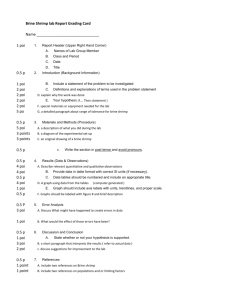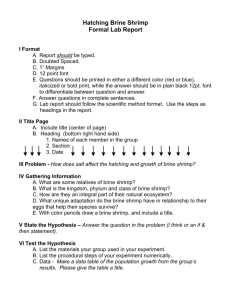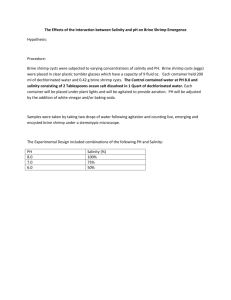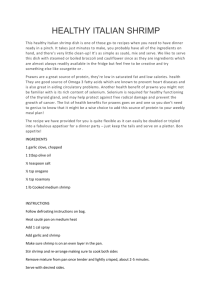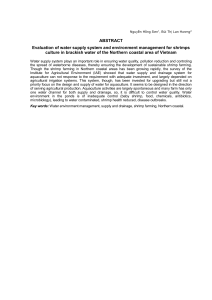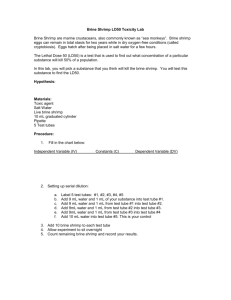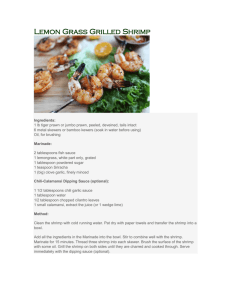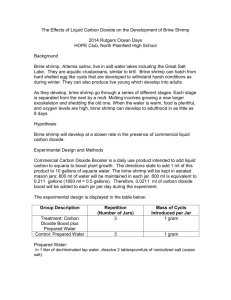Laboratory Report
advertisement
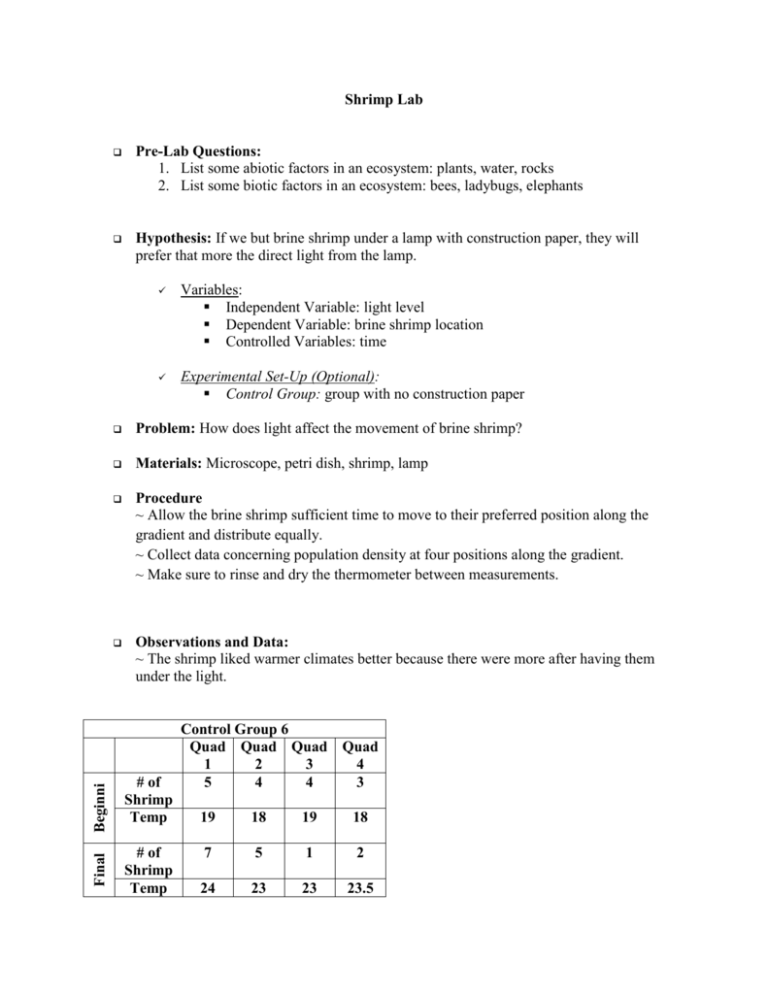
Shrimp Lab Pre-Lab Questions: 1. List some abiotic factors in an ecosystem: plants, water, rocks 2. List some biotic factors in an ecosystem: bees, ladybugs, elephants Hypothesis: If we but brine shrimp under a lamp with construction paper, they will prefer that more the direct light from the lamp. Variables: Independent Variable: light level Dependent Variable: brine shrimp location Controlled Variables: time Experimental Set-Up (Optional): Control Group: group with no construction paper Problem: How does light affect the movement of brine shrimp? Materials: Microscope, petri dish, shrimp, lamp Procedure ~ Allow the brine shrimp sufficient time to move to their preferred position along the gradient and distribute equally. ~ Collect data concerning population density at four positions along the gradient. ~ Make sure to rinse and dry the thermometer between measurements. Observations and Data: ~ The shrimp liked warmer climates better because there were more after having them under the light. Final Beginni ng # of Shrimp Temp # of Shrimp Temp Control Group 6 Quad Quad Quad Quad 1 2 3 4 5 4 4 3 19 18 19 18 7 5 1 2 24 23 23 23.5 Analysis and Conclusions: Questions Specific to Lab: 1. What temperature does brine shrimp appear to prefer? According to our lab the brine shrimp prefer warmer climate. 2. What light level does brine shrimp appear to prefer? According to the data the brine shrimp prefer it dark. 3. Do the brine shrimp appear to be attracted to the light, temperature, or both? The brine shrimp seem to like the hot temperature and the darkness. 4. Did you have outliers that moved to an area of the plate that others did not prefer? Yes, quad 3 and 4 had less shrimp then any other quad. 5. How can this be applied to other organisms in aquatic ecosystems? No, this lab just proved what type of environment the brine shrimp like. Other aquatic ecosystems could like different environments. For example there are animals living and hatching way below miles and miles below the ocean surface where temperatures reach below 0. On the other hand there are other organisms that live and thrive on the surface and enjoy the sunlight. General Conclusions: 1) 2) 3) Evaluate Your Hypothesis: Did your results support your hypothesis? Yes, more there were more shrimp in the dishes with contrition paper. Possible Sources of Error: How could your lab technique or the experimental design be improved in order to produce more accurate data? Well when we were moving our dish from a little water and shrimp spilled out cause it was so full, so that probably changed our numbers a little. Application: How does your experiment fit into the big picture? This proves that brine shrimp like to grow in a dark warm environment. So there will be more shrimp in the darker warmer parts of the ocean.
